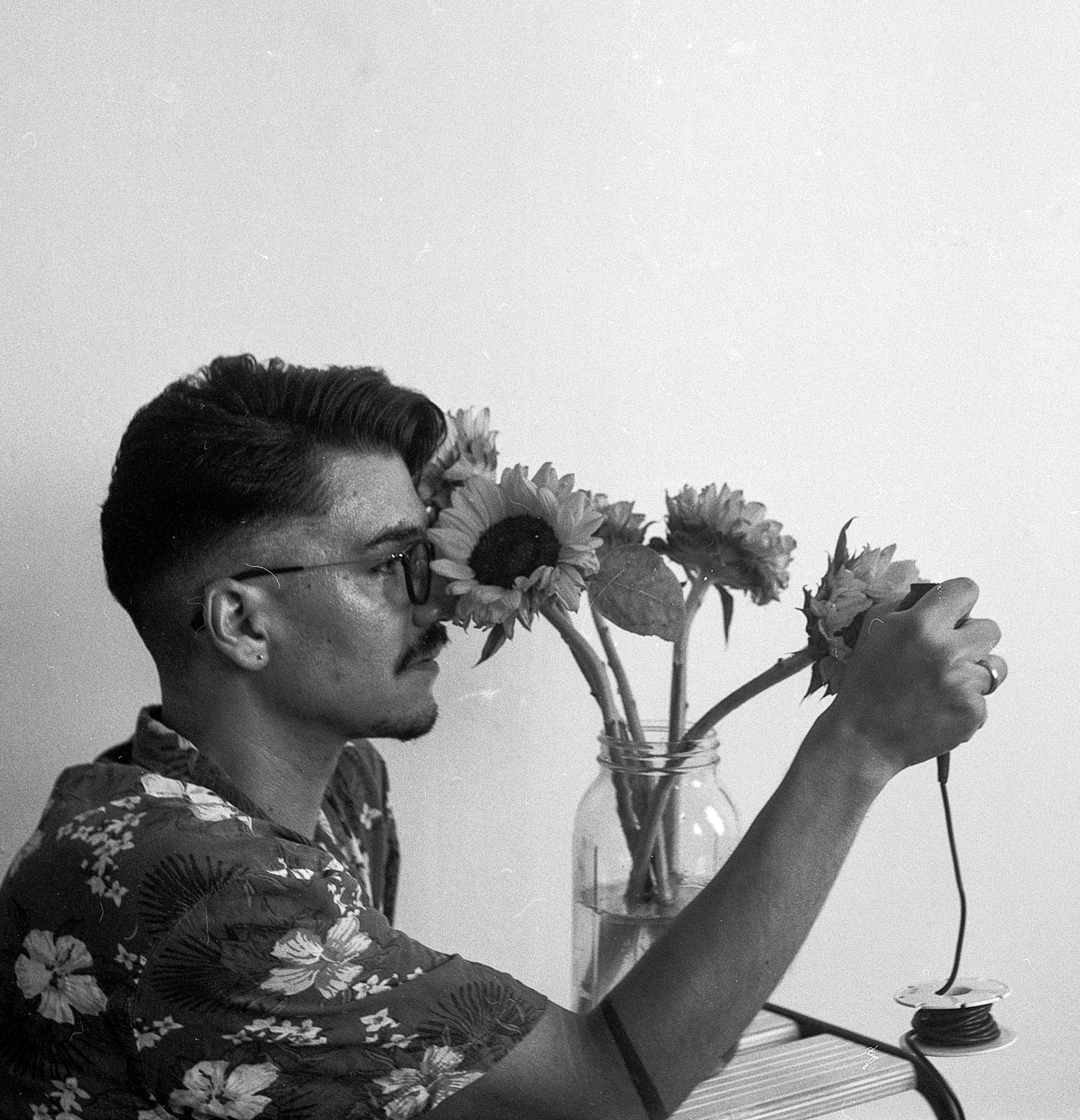Juan Alberto Franco Ricardo is a Bogotá-born contemporary artist, educator, and curator investigating memory and the violence of forgetting.

Biography
Juan grounds artistic and curatorial practice in collaboration, dialogue, and inclusion. Whether working independently or with other artists and cultural workers, they create artist-centric, justice-driven works of art, exhibitions, and creative experiences. Juan constructs lens-based works with the aid of film and digital cameras, flatbed scanners, and found imagery. Their artistic practice focuses on queer intimacies, relationships, and memories. Their curatorial practice investigates the politics of memory, the violence of forgetting, and the role of the artist as creators of non-traditional archives.
Juan has taught in-person and virtual courses in art and photography at Youth in Focus. Classes are designed to be culturally responsive and trauma-informed to create a safe and supportive environment for all students.
Juan has exhibited nationally and internationally at Cornish College of the Arts, The Factory in Seattle, the Rose Lipman Building in London, Tacoma Art Museum, The Fred Hutchinson Cancer Research Center, The Venice Biennale for #DieselReboot, among others. Most recently, they curated the 2019 Neddy at Cornish Exhibition titled Inherent Visions at the Cornish Playhouse and Lugar del Trabajo at the Jacob Lawrence Gallery. They are Co-Founder and Co-Director of festival:festival, a public arts festival in Seattle.
Juan holds an MA in Art History from the University of Washington, Seattle and a BFA in Art from Cornish College of the Arts, Seattle.
Artist Statement
I dedicate my labor and energy to the maintenance and production of cultural concepts and objects through an artistic practice. I rely on a process based on images, actions, and texts to transform the work from one context to another; from one dimension to another. The content of the work is derived from the intersection of theory and lived experiences of erotic, queer, Jewish, transnational, archival, and memorial qualities. This process produces objects and experiences that exists as cultural products to be exhibited, gifted, shared, and bought for transactional, educational, and relational purposes.
I simply frame what already exists, what others choose to disregard consciously or coercively. As I continue to distill labor into cultural concepts and objects, I do not seek novelty. I am interested in finding methods in which to deconstruct ever-present historical and power structures that damage my existence in order to reject their legacy.